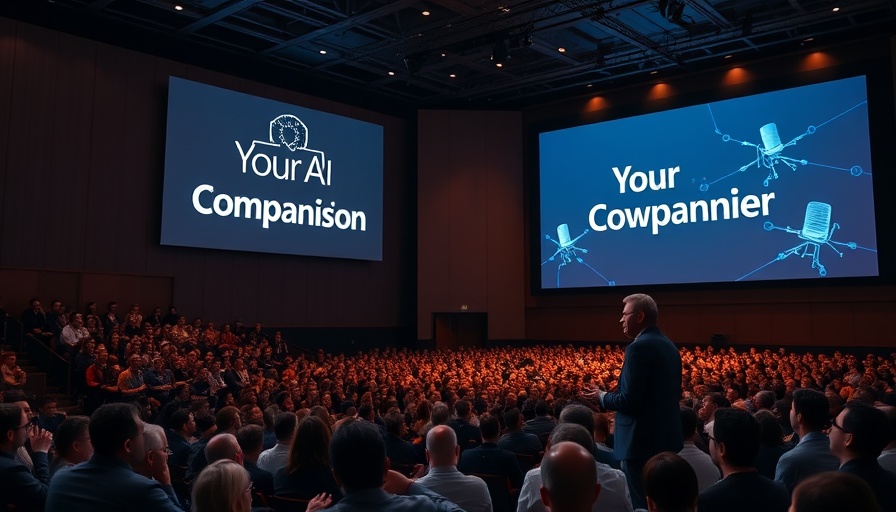
Unpacking Microsoft's Controversial Firings: A Stand Against Workplace Protocols
In a surprising turn of events, Microsoft has reportedly terminated the employment of two software engineers, Ibtihal Aboussad and Vaniya Agrawal, following their protests during a company event. This incident not only highlights a clash between employee expression and corporate policies but also raises important questions about accountability and ethical practices in one of the world's leading tech companies.
The Incident That Sparked Outrage
During the recent Copilot and 50th anniversary event, Aboussad interrupted CEO Mustafa Suleyman’s keynote by accusing him of having 'blood on his hands' due to the company's dealings with the Israeli military. Shortly after, Agrawal voiced similar concerns during a panel featuring influential Microsoft executives, declaring, "shame on all of you ... Cut ties with Israel." These outbursts were not mere expressions of discontent; they were part of a broader campaign against Microsoft’s partnerships that some employees deem unethical.
Exploring Employee Activism in Tech
This episode raises critical discussions about employee activism within the tech industry. Protests against corporate policies are becoming more visible, especially at major tech firms like Microsoft, Google, and Amazon, where employees have vocalized their opposition to contracts with military organizations. Activism within these corporate frameworks can be seen as a cultural shift—one where staff feel empowered to speak out about social issues affecting not just themselves, but also global communities.
Microsoft's Response: A Tightrope Walk Between Policies and Values
In an internal message, Microsoft’s justification for the terminations emphasized that Aboussad should have raised concerns through official channels rather than disrupt the event. This response illustrates a common dilemma in corporate workplaces: balancing a structured hierarchy with facilitating open dialogue. By prioritizing business conduct over employee activism, Microsoft captivates a business-first approach, but risks alienating its workforce.
The Broader Implications for Corporate Culture
As employee activism expands, companies face pressure to develop policies that not only discourage workplace disruptions but also encourage constructive conversations about ethical practices. How corporations respond will shape the future of their internal cultures. With more employees willing to challenge the status quo, organizations must find ways to foster legitimate discussions without compromising their operational integrity.
The Call for Change: Understanding the Motivations Behind Protests
Protests such as those staged by Aboussad and Agrawal stem from deep-rooted concerns among employees regarding corporate complicity in larger geopolitical issues. The movement coined, “No Azure for Apartheid,” reflects a growing consciousness of social justice among tech workers. As this awareness penetrates corporate walls, companies like Microsoft must recognize that failing to address these issues may lead to further unrest and disengagement among their employees.
What’s Next? The Future of Employee Rights in the Tech Sector
Looking forward, the tech industry may witness a more pronounced evolution of workplace rights. Advocates for employee rights stress the need for avenues to express concerns without fear of reprisal. As workers in tech increasingly align their professional lives with their ethical beliefs, companies will have to consider how they can responsibly manage and incorporate activism without discouraging democratic participation.
A Call for Ethical Corporate Governance
As corporations navigate the complexities of modern work-life intersections, establishing spaces where dissent can flourish is crucial. The narrative surrounding Microsoft’s actions can serve as a cautionary tale about the risks of ignoring employee concerns. Combating public sentiment with binary approaches of disciplinary action may only lead to short-term solutions—long-term success will hinge on how organizations engage in dialogue with their stakeholders.
 Add Row
Add Row  Add
Add 



Write A Comment